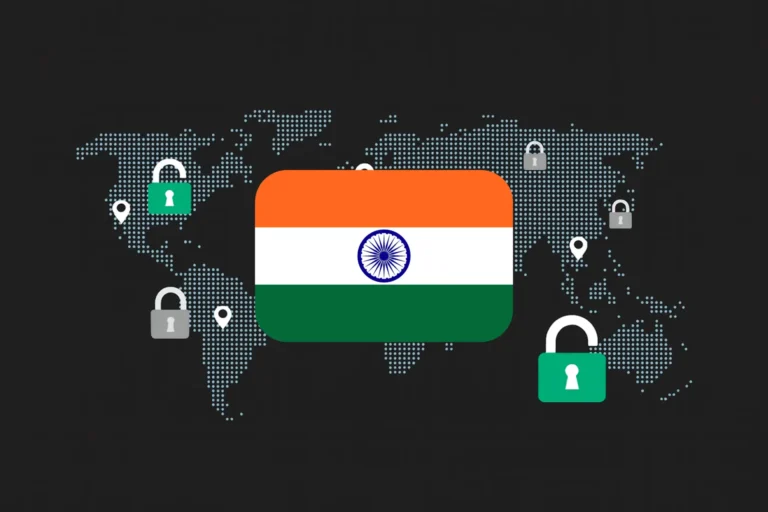“Pakistan’s Cybersecurity Alert: A Response to Growing Risks

In light of escalating tensions between Pakistan and India, the National Cyber Emergency Response Team (NCERT) has issued a high-priority advisory alerting Pakistani citizens to a significant increase in cyberattacks and misinformation campaigns. These malicious activities have been rapidly exploiting the growing climate of uncertainty, aiming to target critical national networks, steal sensitive information, and destabilize key systems in the country. With geopolitical issues intensifying, cyber warfare is becoming an additional front on which Pakistan finds itself engaged, posing serious risks to its digital infrastructure.
The advisory released by NCERT sheds light on various tactics employed by adversaries, specifically detailing the growing trend of phishing schemes, fake news, and misleading messages being disseminated through social media and messaging platforms. This latest wave of cyberattacks is not confined to government systems but extends its reach to corporate networks, private organizations, and individuals alike. Attackers are utilizing a variety of advanced techniques, including homograph attacks where URLs mimic trusted domains by using similar-looking characters to deceive unsuspecting users into visiting malicious websites. These fake websites often appear legitimate, leading to data breaches and, in some cases, even financial theft.
In addition to homograph attacks, attackers are increasingly using QR codes as another tool to mislead victims. The codes, which are often posted in public places or sent through messaging platforms, lead users to infected websites, thereby compromising their devices with malicious malware. Infected web pages and unauthorized advertisements have also been employed to inject harmful software into users’ systems, granting cybercriminals unauthorized access to sensitive data and personal information. Given that most individuals are unaware of these subtle tactics, the threat posed by such sophisticated methods has been a growing concern among security experts in Pakistan.
To counter these risks, NCERT has strongly advised that the public adopt a proactive approach by avoiding unsolicited or suspicious links, especially those shared through social media platforms such as Facebook, Twitter, and WhatsApp. Misinformation spreads rapidly on these platforms, often fueled by malicious actors looking to manipulate public opinion or create panic. Consequently, citizens are urged to avoid sharing unverified information and to instead rely on official sources for any updates. This precautionary measure is essential to help curb the spread of fake news and to reduce the overall impact of cyberattacks on both national security and public trust.
The advisory also stresses the importance of strengthening endpoint security for individuals and organizations, recommending the installation of updated antivirus tools and the use of multi-factor authentication to protect personal and corporate accounts. Monitoring networks for unusual or unauthorized activity is another critical step in ensuring that potential security breaches are identified early, allowing for swift corrective action. NCERT emphasized that, while the government plays a crucial role in defending the nation’s infrastructure, individual responsibility remains vital in securing digital spaces against potential threats.
In addition to these measures, NCERT has reassured the public that rapid response mechanisms are in place to mitigate cyberattacks and provide assistance when needed. Citizens are encouraged to report suspicious activity, such as unusual website behavior, phishing attempts, or unauthorized access to personal information, to the relevant authorities. The advisory underscores the importance of coordination between the public and government bodies in the fight against cybercrime, urging people to stay vigilant and to avoid amplifying rumors or sharing unverified content online.
The rising frequency and sophistication of these cyberattacks have highlighted the critical need for Pakistan to bolster its digital defenses, especially in a period of heightened geopolitical tensions. As cyber threats evolve, so too must the country’s response mechanisms. The NCERT’s advisory is a timely reminder of the importance of cybersecurity in protecting national security, economic stability, and the safety of individuals. The increasing reliance on digital systems for communication, business, and everyday tasks has made Pakistan’s cybersecurity infrastructure an essential component of its broader national security strategy.
This cybersecurity warning also serves as a wake-up call for organizations, particularly in sectors like finance, energy, and telecommunications, which are considered high-value targets for cybercriminals. With the country’s digital landscape growing more interconnected, the threat of a full-scale cyber assault looms larger, especially as adversaries increasingly exploit technological vulnerabilities for espionage, sabotage, or information warfare.
Pakistan’s vulnerability to cyberattacks is exacerbated by the lack of a well-informed public. Many citizens remain unaware of the dangers of cybercrime, making them easy targets for phishing and other online scams. To address this, NCERT calls for an increased focus on cybersecurity awareness programs to educate the public and empower individuals with the knowledge needed to recognize and protect themselves from online threats.
In conclusion, Pakistan’s digital defenses are under attack, and it is essential for both the government and its citizens to work together to ensure the safety and security of the country’s online infrastructure. The NCERT’s cybersecurity alert underscores the gravity of the situation and the steps that must be taken to mitigate the risks posed by cybercriminals. As tensions with India and other adversaries continue to rise, safeguarding Pakistan’s digital borders becomes a critical component of the nation’s overall security. Pakistan has every right to defend its sovereignty, not just in the physical realm but also in the cyber domain, and it must remain vigilant against the growing threat of cyber warfare.







